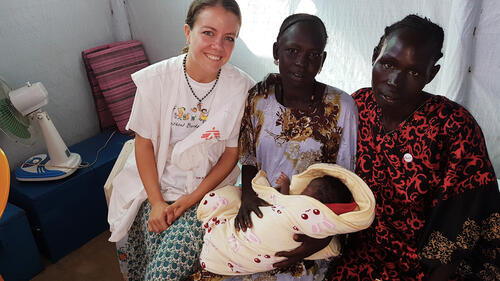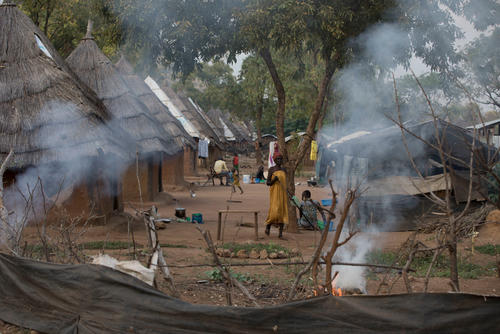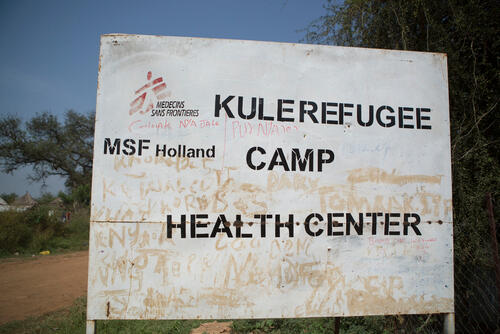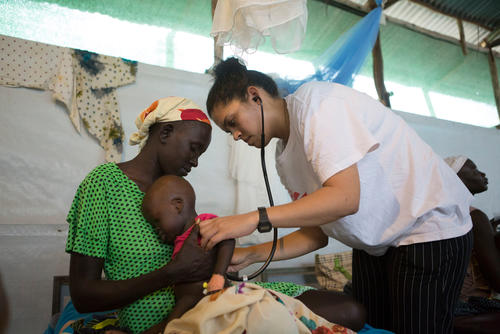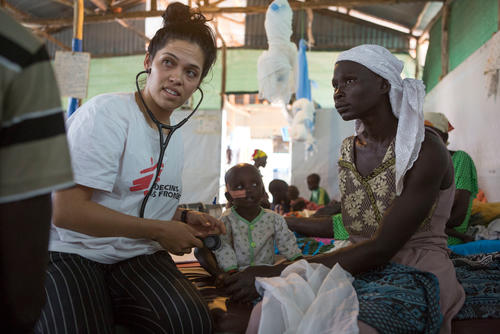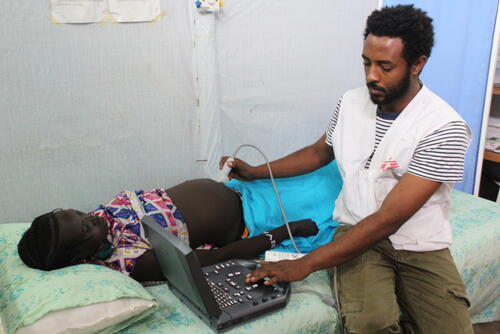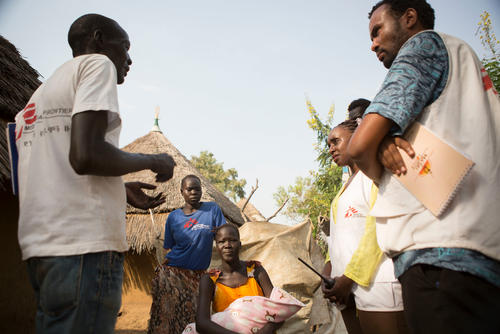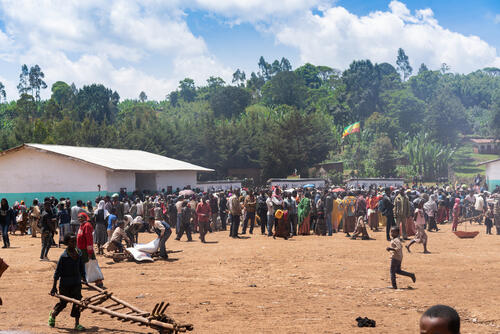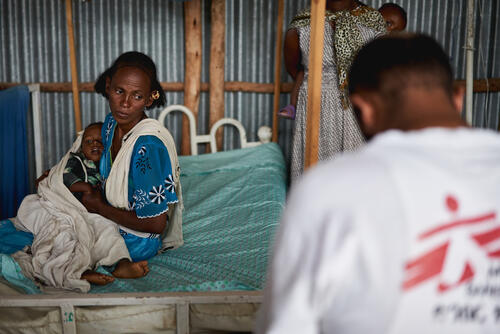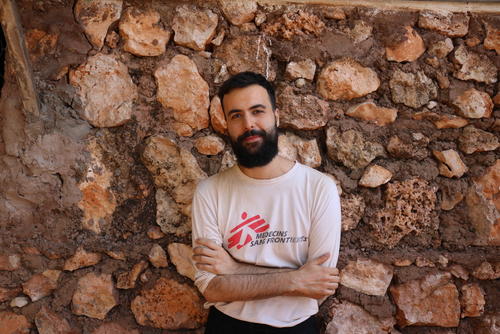I see a lot of suffering in the refugee camp, but as a midwife I also see a lot of joy.Christine Tasnier, MSF midwife
For almost a year I have been working in the MSF health centre in Kule refugee camp, in Ethiopia. 54,000 people from South Sudan have sought shelter here from the civil war in their homeland.
The living conditions in the camp are difficult and make people sick: people drink contaminated water when the wells are empty and get diarrhoea; children are malnourished because the food is often insufficient; and many residents suffer from respiratory infections because the nights are cold and they have no blankets in their huts.
Our health centre is almost the only medical aid here.
As a midwife, I know how terrible this kind of situation is for pregnant women. But we have set up a good offer. We provide antenatal care, accompany births, and treat mothers and their babies after delivery.
Often we can do a lot by simple means. And sometimes it is critical – as was the case for Nyakueth Kurg. This young woman came to us in labour, with life-threatening cramps known as eclampsia.
We knew we had to speed up her birth. So we gave her medication to lower her blood pressure and induced the labour. Luckily, then everything went well, and she gave birth to a healthy girl.
Nyakueth called her baby Peace. It is a common tradition in South Sudan to name children after the circumstances of the birth, and that night there were rumours of a peace agreement in South Sudan.
The people here want so much to be able to return to their homeland. So far their hopes have been disappointed every time. Nevertheless, I experience a lot of joy here.
On average, we help more than 570 patients a day in Kule – help that saves many lives.



